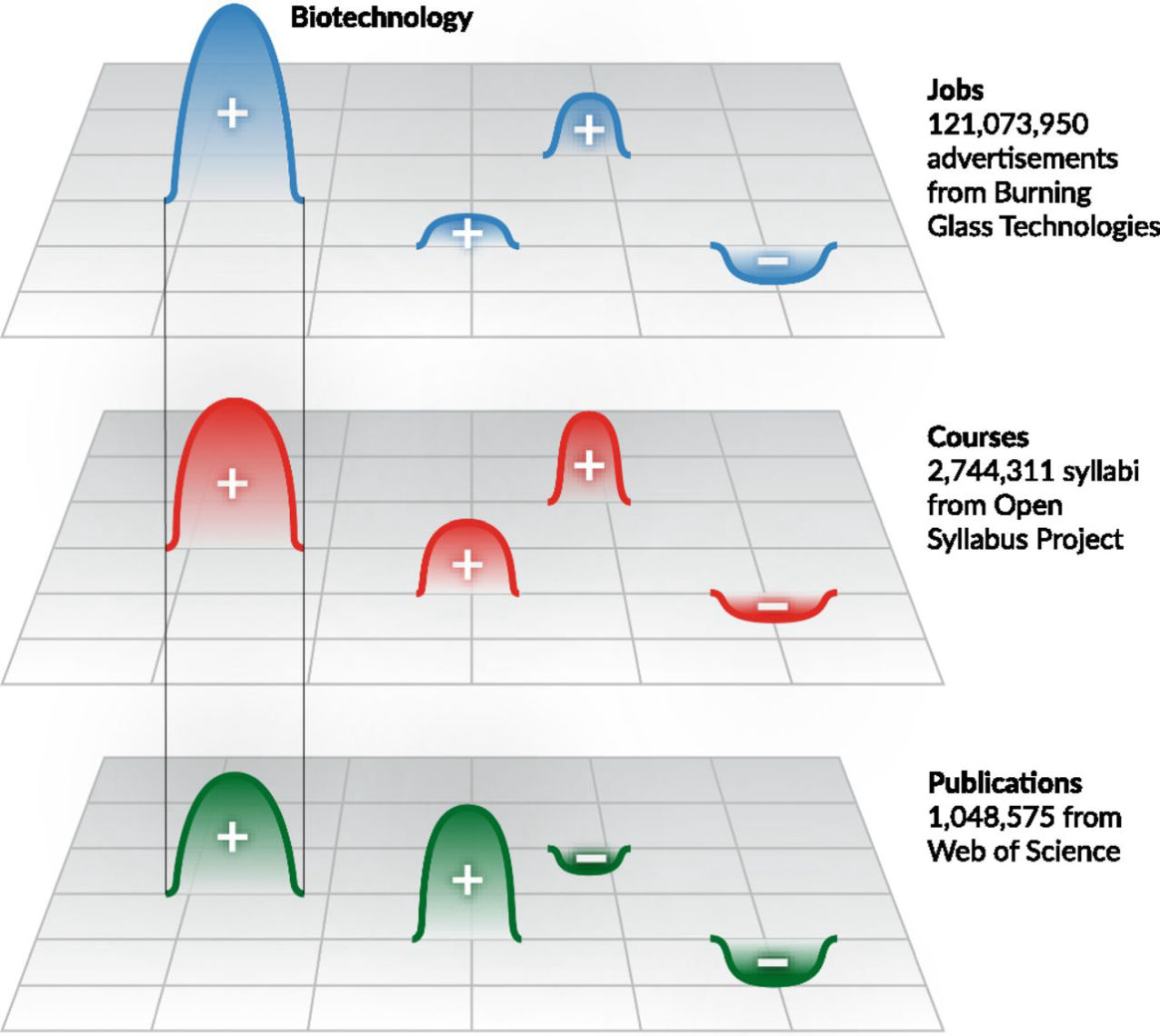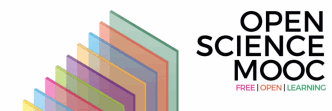
Hyperbolic Embedding of Skills
How has the emergence of big data, artificial intelligence, and automation realign skills that are researched, taught and demanded by industry?
To answer this question, I examined the centrality of skills as they co-occur across 120 million job advertisements, 3 million course syllabi, and 1 million research publications over 7 years from 2010 to 2016. To model the hierarchy of skills, I used an embedding technique operationalized by the Facebook AI group to represent tree-like hierarchy without distortion using 2-D hyperbolic geometry or Poincaré disks. On each disk, the radius quantifies position in the hierarchy - skills of small radius hold a central position in the network of co-occurrences, and the angle between two skills quantifies their proximity.
I found that soft skill, which involve interpersonal interaction and language facility, were most central than hard skills, which involve quantitative and operational skills in jobs. Nevertheless, they were somewhat less central in course syllabi, and much less central in research publications. This highlights a substantial discrepancy between how central soft skills, like communication, are to the workplace, including in technical jobs as main driving forces of an increasingly data-driven economy, but how peripheral they are to technical courses and publications.




